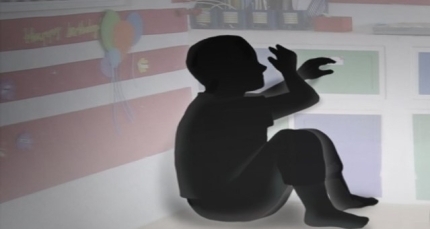[Newsmaker] Child abuse can now lead to death penalty in South Korea
Punishment for sexual exploitation of teenagers also gets stronger
By Shin Ji-hyePublished : Feb. 28, 2021 - 14:56

South Korea is strengthening punishment for child abuse amid a growing number of cases, with the recent revision of a child abuse law now making the death penalty a possibility.
On Friday lawmakers passed a bill at the plenary session of the National Assembly to revise a law dealing with penalties for child abuse, making it possible for child abusers to be convicted of murder even if they did not intend to cause death.
The amendment, called the Jeong-in Act, is named after a 16-month-old girl who died after allegedly being abused by her adoptive parents.
Under the revised law, those who abuse children and unintentionally cause death can face the death penalty or imprisonment for seven years to life.
As it stands now, if a child is killed during abuse, the perpetrator can be sentenced to five years to life.
The bill passed amid growing calls for tougher punishment after a number of high-profile cases where children died of abuse. The number of child abuse reports is increasing every year, having nearly tripled from 11,700 in 2015 to 30,000 in 2019.
But it was not approved unanimously. Among the 254 lawmakers who attended the plenary session, 252 voted in favor, one voted against and one abstained.
Rep. Kim Woong of the main opposition People Power Party, who voted against the bill, said, “Tragedies like Jeong-in’s case will not be solved simply by raising the sentence.” Criminals commit crimes even if they know the consequences, the former prosecutor argued.
Kim blamed Jeong-in’s death on negligence of duty and violations of regulations by the police, saying the so-called Jeong-in Act lacked any mechanism to address those problems.
On the same day, multiple bills were passed that toughened punishments for crimes against teenagers.
Lawmakers passed a revised bill that deals with “grooming” -- luring children or teenagers online to exploit them sexually.
The revision to the Youth Protection Act provides for a sentence of up to three years in prison or a fine of up to 30 million won ($26,642) for repeated online conversations or sexual activities that cause sexual desire, shame or disgust.
The statute of limitations was abolished for crimes involving the production, export and import of content made by sexually exploiting children or adolescents.
To investigate online sex crimes against children and adolescents, the police will be allowed to disguise their identities. But undercover investigations cannot last for more than three months and must be immediately terminated if their purpose is achieved sooner.
By Shin Ji-hye (shinjh@heraldcorp.com)
On Friday lawmakers passed a bill at the plenary session of the National Assembly to revise a law dealing with penalties for child abuse, making it possible for child abusers to be convicted of murder even if they did not intend to cause death.
The amendment, called the Jeong-in Act, is named after a 16-month-old girl who died after allegedly being abused by her adoptive parents.
Under the revised law, those who abuse children and unintentionally cause death can face the death penalty or imprisonment for seven years to life.
As it stands now, if a child is killed during abuse, the perpetrator can be sentenced to five years to life.
The bill passed amid growing calls for tougher punishment after a number of high-profile cases where children died of abuse. The number of child abuse reports is increasing every year, having nearly tripled from 11,700 in 2015 to 30,000 in 2019.
But it was not approved unanimously. Among the 254 lawmakers who attended the plenary session, 252 voted in favor, one voted against and one abstained.
Rep. Kim Woong of the main opposition People Power Party, who voted against the bill, said, “Tragedies like Jeong-in’s case will not be solved simply by raising the sentence.” Criminals commit crimes even if they know the consequences, the former prosecutor argued.
Kim blamed Jeong-in’s death on negligence of duty and violations of regulations by the police, saying the so-called Jeong-in Act lacked any mechanism to address those problems.
On the same day, multiple bills were passed that toughened punishments for crimes against teenagers.
Lawmakers passed a revised bill that deals with “grooming” -- luring children or teenagers online to exploit them sexually.
The revision to the Youth Protection Act provides for a sentence of up to three years in prison or a fine of up to 30 million won ($26,642) for repeated online conversations or sexual activities that cause sexual desire, shame or disgust.
The statute of limitations was abolished for crimes involving the production, export and import of content made by sexually exploiting children or adolescents.
To investigate online sex crimes against children and adolescents, the police will be allowed to disguise their identities. But undercover investigations cannot last for more than three months and must be immediately terminated if their purpose is achieved sooner.
By Shin Ji-hye (shinjh@heraldcorp.com)




















![[Today’s K-pop] BTS pop-up event to come to Seoul](http://res.heraldm.com/phpwas/restmb_idxmake.php?idx=642&simg=/content/image/2024/04/17/20240417050734_0.jpg&u=)